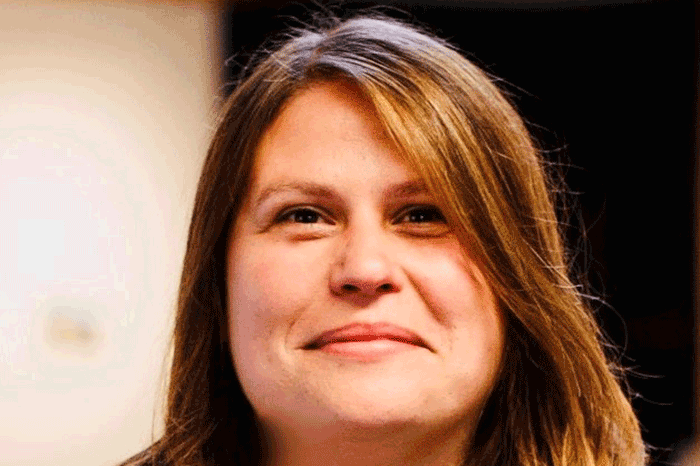Over the last few months, we have made some substantial changes around our approach to Equality, Diversity and Inclusion (EDI) at Kent, with a view towards more transparency, institutional accountability, and embedding continual change. In 2020, the resurgence of the Black Lives Matter movement captured global attention following the tragic murder of George Floyd. At the same time, evidence began to emerge showing that the coronavirus – and measures to tackle it – has unequal health, social, and economic impacts for those with protected characteristics. These issues have prompted us to reconsider our priorities as a University, highlighting that we must focus more on racial inequality and the fallout from Covid-19.
More broadly, EDI has been an area of development at the University and has become increasingly embedded and important to our community at Kent. We need to focus now on mechanisms and actions, which will allow us to harness the range of activities and enthusiasm of our colleagues and students to facilitate transformational change. The need for a clear route for members of our community to input this area is key to promoting an inclusive environment. Following findings from the EDI Task and Finish Group, we have revised our EDI governance structure to ensure that:
- strategy and objectives can be agreed and monitored
- agreement of priorities and a workplan with appropriate action owners
- co-ordination of EDI operations across both staff and students, and
- meaningful engagement with networks on EDI issues.
Importantly, the new EDI strategy group has a clear reporting line to University Senate and a broad membership (including representation from the JSNCC, Kent Union, and Council).
EDI leadership
The review also raised the need for dedicated EDI support across all our communities at Kent and I am delighted that we will shortly be recruiting a Head of Equality, Diversity and Inclusion who will work directly with me to address issues that cross our community. This role will be pivotal for removing structural barriers and accounting for systemic biases, particularly with those in our community who experience multiple structural disadvantages. We all have a responsibility to embed the values of equality and inclusion in our work. I am confident that focused leadership in this area will help us to do so and provide the tools, resources, coordination and engagement to keep this priority front and centre – a golden thread – for all our activity.
I would like to extend my heartfelt thanks to the Athena Swan team who led the work and submission for our institutional Silver award application, of which we will hear the outcome in Spring. Although submitting the application is in itself an achievement, the work of the team extends far beyond this, to events such as the Menopause Café and support, advice and information for those finding themselves suddenly both home-schooling or caring while also working or studying from home.
Challenging Racism
As part of our Challenging Racism campaign, we are hosting a series of webinars, and we will be launching a dedicated website where we will provide clear and transparent information to hold us accountable as we continue to take actions to challenge racism, including structural and process issues raised by members of our community – staff and students. We will also be progressing work required for the Race Equality Charter, which provides a framework through which we can identify and self-reflect on institutional and cultural barriers standing in the way of Black, Asian, and Minority Ethnic colleagues and students.
These commitments signal the start of a process and although it may take time to see change, we are focused on tackling race inequality and creating a change in culture to promote inclusion. We are aware that pockets of excellence at Kent have been addressing these issues through research, education, and activism. What we need in parallel is a systemic look at the “business as usual” structures that often reflect non-inclusive norms of academic and institutional culture. These need to change so we can create an environment where people who work, study, visit Kent from all backgrounds are able to thrive and where tackling racism and advancing race equality is the responsibility of us all.
A key part of this work is to establish our Race Equality Self Assessment Team. Members of the self assessment team will include role holders within Kent, as well as staff and student representatives from relevant network groups. But we welcome expressions of interest from all colleagues and students – please do get in touch if you would like to be involved.
Thank you
I take this opportunity to extend a huge thanks to all members of the EDI task and finish group, especially to Professor Sarah Vickerstaff, who chaired the group, for her leadership and perseverance with tackling our challenges and providing a road map for our next steps. Also thank you to everyone involved in making our community at Kent more diverse and inclusive – from those who have published and taught on these topics, to community group chairs, those who have run events, the EDI reps, the HR and student services operational teams, and every member of our community who has raised institutional structural issues, reviewed a reading list or module outline with a diversity focus, challenged behaviour, educated themselves on issues that others face, or run an accessibility check on a document.
I feel privileged to have the opportunity to coordinate our efforts and work with you in safe and open spaces to share experiences, discuss inequality, and take action to confront and address our own biases – conscious and unconscious. With perseverance and hard-work, we can foster an environment where all are supported to thrive and meet their potential.
Professor Georgina Randsley de Moura | Deputy Vice Chancellor – Academic Strategy, Planning and Performance

